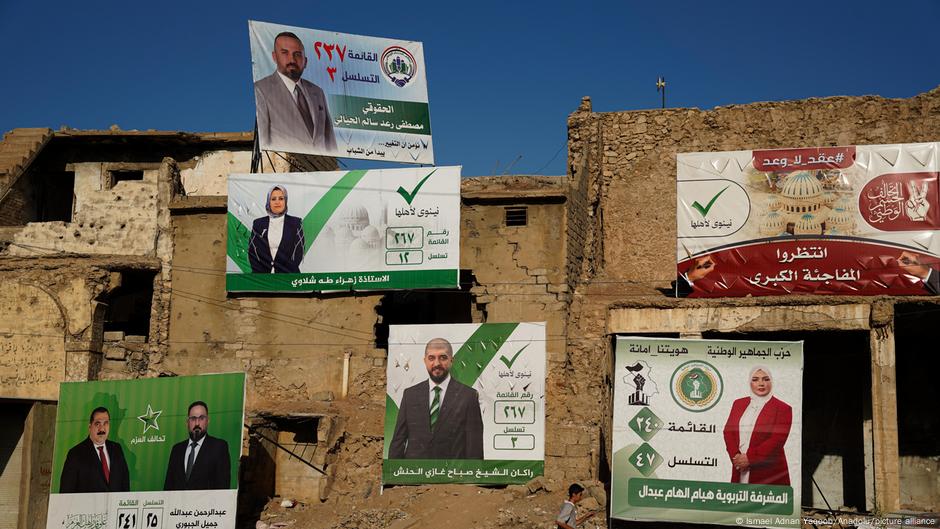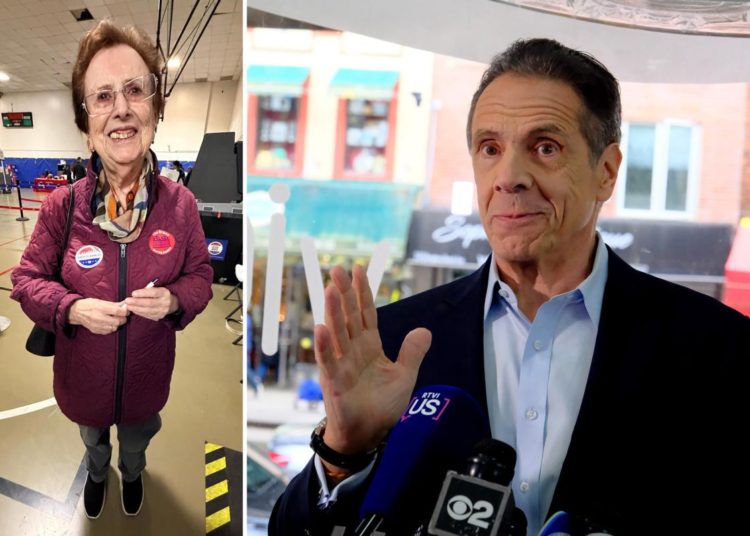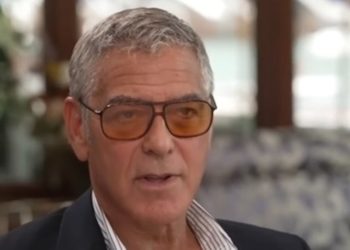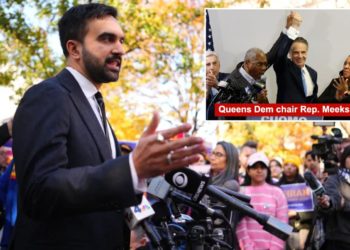“Iraq is the best it’s ever been,” said Khudair al-Ali, a young man who works for an oil company but on weekends drives for Careem, the Middle East’s version of Uber.
“But we still have problems,” he said, gesturing at potholes he tries to avoid. “The streets need to be fixed and there are too many cars in Baghdad.”
“We need more bike lanes,” he said, adding that it takes him 15 minutes cycle to work and over an hour to drive.
A lack of bike lanes was once the least of ‘s problems. The country has more often been in the headlines for war and violence. But, over the past few years, that has changed significantly: Iraq is seeing its since the US invaded in 2023.
Recent Gallup polling shows Iraqis’ to be at record highs with 55% of respondents expressing confidence in the government — that’s unusual in the Middle East, where only the Iranians and Jordanians are more satisfied with their leaders. Locals’ trust in institutions like the police, military and judicial system is also at an all-time high, the surveys show.
A different Iraq emerges
“Today’s Iraq is not the same as the Iraq of 20 years ago, or even five years ago,” Mohamed al-Hassan, the head of the Assistance Mission for Iraq, recently told the UN Security Council. Obstacles remain, al-Hassan said, but “Iraq today is more secure, stable and open.”
“Overall the security and prosperity trends are positive,” Jon Wilks, the UK’s former ambassador to Iraq, wrote for the Atlantic Council in early September after returning from Iraq. “Even if widespread corruption continues to act as a brake on progress.”
“The corruption is still the same as ever,” Mustafa Hussein, a civil servant, confirmed over lunch in an upmarket Baghdad restaurant. “But things are actually getting done. The other day I had to register my car for a new license plate and I did it online. Later two guys showed up to my house to put the license plate on. They actually came to my house,” he exclaims. “Amazing!”
“It’s the same for passports,” his lunchtime date, Ibrahem Ayash, a journalist, agreed. “Things just work better here now.”
All this has made both men more inclined to vote in Iraq’s upcoming elections on November 11, when Iraqis will choose a new 329-seat parliament.
“The last time I voted was in 2005,” Hussein noted.
That election, 20 years ago, was the first time that Iraqis were able to vote after dictator Saddam Hussein was ousted as a result of the 2003 US invasion of the country.
Haddad hadn’t voted since 2005 because, he argued, “nothing ever changed anyway. But this time I would vote — because of this man,” he told DW, referring to Iraqi Prime Minister Mohammed Shia al-Sudani, who’s been in power since 2022.
Many Iraqis see al-Sudani as a who’s been able to balance competing interests in Iraqi politics. They also see him as responsible for improvements in state services and the many infrastructure investments.
Impact on elections
So how will all the construction, peace and positivity translate in the upcoming elections, and perhaps even more importantly, voter turnout?
Back in 2005, voter turnout was huge at 80%, but it has fallen ever since, as Iraqis have grown increasingly disillusioned. In the last elections in 2021, turnout was so low as to almost render results irrelevant.
“Many Iraqis see what’s happening in Baghdad — the development, the building, the infrastructure and also what’s happening elsewhere in the region, with all these conflicts in Syria, Lebanon, Yemen, Iran, — and they’re saying that, for once, we seem relatively stable,” says Renad Mansour, director of the Iraq Initiative at British think tank Chatham House. “So there’s a sense of relief. But after two decades of voting, they also know that even if al-Sudani, or whoever they vote for, actually wins, it’s not their vote that determines who the next government will be.”
In Iraq, elections are less of a referendum on local politicians and more of “a way for the elites to just come back around the table every four years and renegotiate their positions and stake in the state,” Mansour argues.
Since the end of dictatorship, the most powerful positions in Iraq’s government have been negotiated to ensure each major demographic had a role. For example, the Iraqi prime minister is always Shiite, the speaker of parliament Sunni and the president Kurdish. Originally the system was organized like this to avoid the different groups fighting. But it has since become a handicap, leading to the perception that the same powers remain in charge.
“The seats won at the polls will serve as bargaining chips, which elites deploy alongside other levers of power — including violence and street mobilization — as parties vie for senior government positions,” Mansour explained in an October primer on the ballot.
Then it takes months of negotiations to form the Iraqi government and leaders are chosen during negotiations, not directly by voters. So even if al-Sudani managed to emerge victorious, he might not be chosen as prime minister again.
‘Deeply disillusioned’ voters in Iraq
That is why “the fact that we’ve had some stability does not necessarily translate into people wanting to vote,” explains Sajad Jiyad, a political analyst based in Baghdad and a fellow at the think tank Century International.
“Look at the polling,” he told DW. “This prime minister has high approval, probably the highest of any prime minister going into an election. But does that mean those people are going to vote for him on the day? Will they actually show up?”
Jiyad says most ordinary Iraqis he speaks to tell him they won’t vote in November.
“The people I’ve talked to who are [going to vote] are police officers, civil servants — basically people who identify with their candidate or who benefit from the system. Whereas the vast majority are not loyal to anybody and don’t see the elections as a vehicle for change.”
That is supported by polling inside Iraq.
“Recent surveys show a deeply disillusioned population skeptical of the ballot box as a means of accountability,” Munqith Dagher, the head of the Al Mustakilla Group for Research in Iraq, which regularly surveys popular sentiment about the election, wrote early in October. “If current trends hold, turnout in 2025 could be the lowest in Iraq’s post-2003 history.”
And that could be a serious problem for Iraq’s comparative stability, he argued: “Turnout is not just a statistic — it is the foundation of electoral legitimacy. Iraq’s post-2003 political system rests on the premise that popular participation can channel conflict into ballots. Every decline in turnout chips away at that fragile foundation.”
Edited by: Carla Bleiker
The post Will public optimism bring political change in Iraq vote? appeared first on Deutsche Welle.




